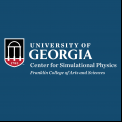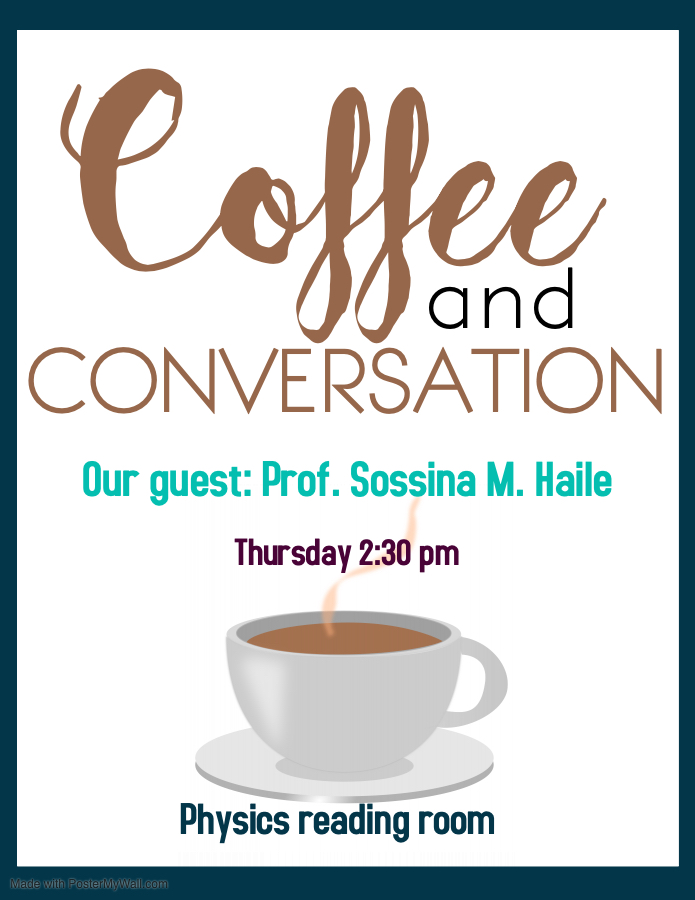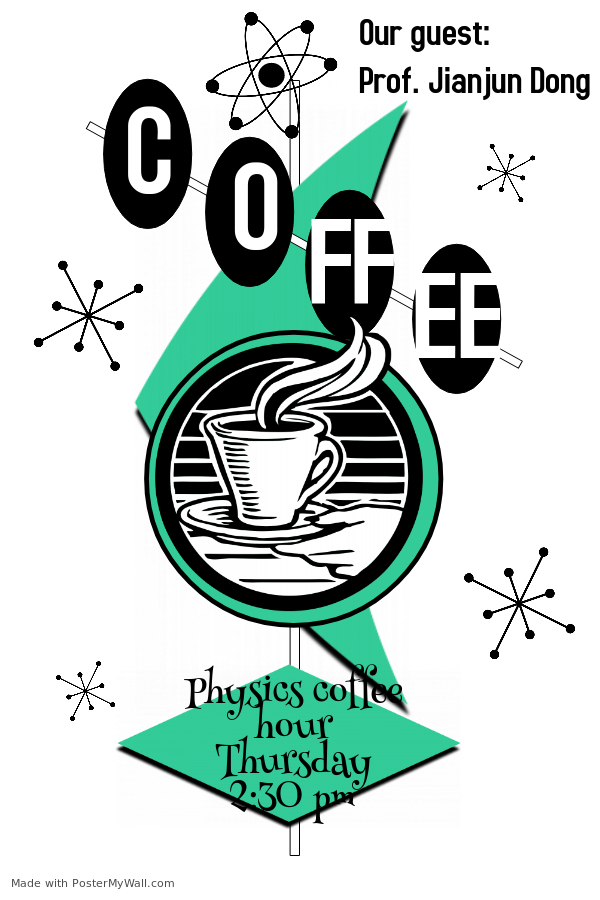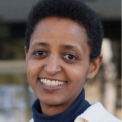Events Calendar View
-
CSP Lunch Seminar
Oct 15, 2019
First-principles investigations of structure and vibrations of c(4x2) PF3 on Cu(001) - Part II

Guest: Nima Karimitari, Center for Simulational Physics, UGA
Tuesday, October 15, 2019 12:30 pm - 1:30 pm
Location: CSP Conference Room (322) -
Coffee Hour
Oct 17, 2019
Departmental Coffee Hour
Our colloquium speaker, Prof. Sossina M. Haile is our guest today.Please see the flier for more information.I also wanted to mention that one of our visiting friends, Fabricio, is leaving tomorrow. Please join us to meet him before he leaves, if you get a chance.Our sponsor, today, is our friend, Garrett and he wants to surprise us with a homemade and healthy baked oatmeal.
-
Departmental Colloquium
Oct 17, 2019
Understanding and Exploiting the Splendid Redox Physics of Ceria and It’s Derivatives
Ceria and its derivatives find use in a wide variety of technologies from traditional applications in solid oxide fuel cells, catalysis, and electrochemical sensors, to new applications in computing, medicine, and water splitting. The suitability of ceria for these many applications derives in part from the redox flexibility of the material, with the predominantly Ce4+ ion adopting the 3+ oxidation state under conditions amenable to external control. The very high oxygen ion transport in suitably doped ceria is a second critical factor driving its technological value. Here we present recent results highlighting transport and redox activity in (i) bulk, (ii) grain boundary, and (iii) surface regions of ceria, obtained using a range of techniques from bulk thermogravimetric measurements, to in situ X-ray absorption studies and electron holography. We report on the unusual behavior of ceria upon substitution of Ce with the nominally isovalent species Zr. Contrary to what might be expected, Zr4+ has a dramatic impact on oxygen vacancy formation, in both the bulk and surface regions of the oxide. We further report on the dramatic role of trace impurities on transport across the grain boundaries of polycrystalline, rare-earth doped ceria. The insight garnered suggest new approaches to controlling material behavior for optimal technological characteristics.
-
Coffee Hour
Oct 24, 2019
Departmental Coffee Hour
We are having another departmental coffee hour, on Thursday, 10/24 at 2:30pm in the physics reading room.
Thanks to Dr. Shelton for supporting this coffee hour.

-
Departmental Colloquium
Oct 24, 2019
Theory and Simulations of Heat Conduction in Anharmonic Solids
At the dawn of quantum physics, RE Peierls proposed to combine the concept of quanta of lattice vibration, i.e. phonons, with the particle Boltzmann Transport Equation (BTE) theory to describe thermal transport processes at the microscopic level. Since then, the phonon gas (PG) model has served as the theoretical foundation to calculate and interpret thermal transport properties of solids. In this talk, I will present some of our recent work of implantation and further development of atom-scale computational methodologies for lattice thermal conductivity calculations. First, I will discuss the strengths and weaknesses of three commonly adopted computational methods, namely, (1) the non-equilibrium molecular dynamics simulation method, (2) the equilibrium fluctuation-dissipation theory, such as Green-Kubo formalism, and (3) the phonon BTE theory. Then, I will highlight some of our newly discovered heat transfer mechanisms, including the phonon-polariton effects on bulk lattice thermal conductivity at high temperatures, and the coupling-decoupling mechanism for interfacial heat transfer cross weakly bonded molecular interfaces. Finally, I will discuss the breakdown conditions of the PG model based on our newly proposed vibration Fokker-Planck Equation (FPE) theory, and the implications to calculations of thermal conductivity at high temperatures and/or of solids with strongly localized vibrational modes.
References:
Yi Zeng, Jianjun Dong, and Jay M. Khodadadi, “Theory and simulations of thermal conductance of flexible molecular interfaces”, under review.
Yi Zeng and Jianjun Dong, “Fokker-Planck equation for lattice vibration: Stochastic dynamics and thermal conductivity", Phys. Rev. B 99, 014306 (2019).
A.M. Hofmeister, Jianjun Dong, and J. Branlund, “Thermal diffusivity of electrical insulators at high temperatures: evidence for diffusion of bulk phonon-polaritons at infrared frequencies augmenting phonon heat conduction”, J. Appl. Phys. 115, 163517 (2014).
Xiaoli Tang and Jianjun Dong, "Lattice thermal conductivity of MgO at conditions of Earth's interior", Proc. Natl. Acad. Sci. U.S.A. 107, 4935-4954 (2010) -
CSP Lunch Seminar
Oct 29, 2019
Finite-Size Scaling in Spin Glasses, by and for Optimization Heuristics
Page 97 of 121, showing 6 records out of 723 total, starting on record 577, ending on 582





